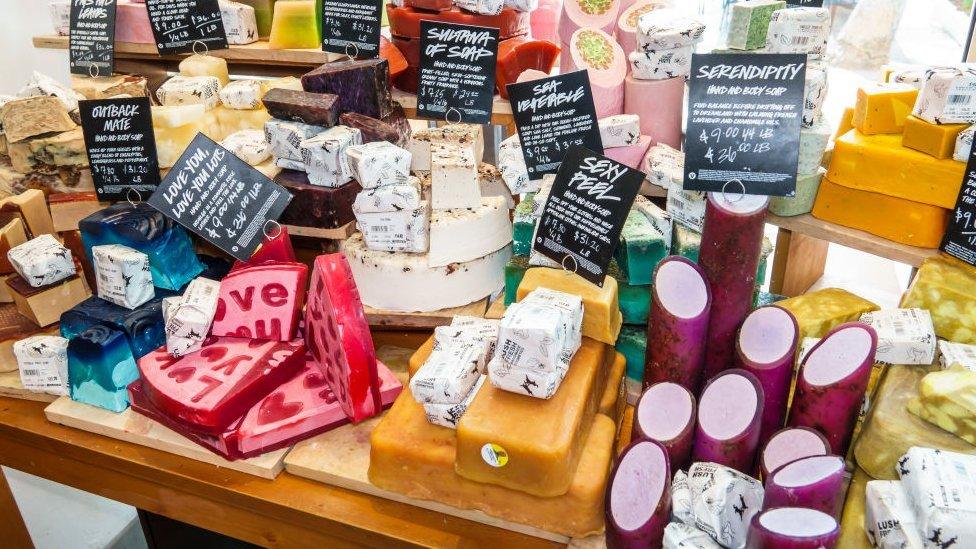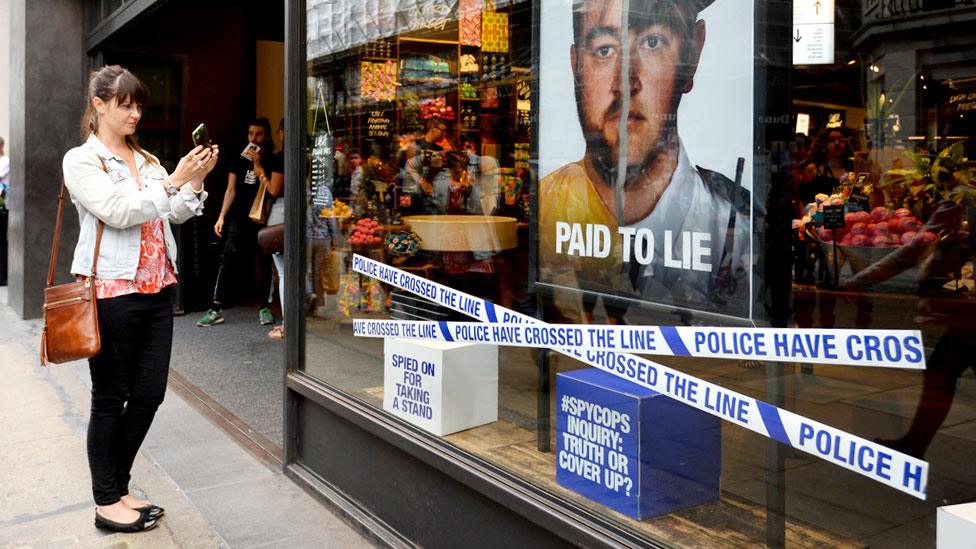Lush to stop some social media until it's 'safer'
- Published

Cosmetics firm Lush says it is deactivating some social media accounts until platforms "take action to provide a safer environment" for users.
The company said that from Friday, its Instagram, Facebook, TikTok and Snapchat pages will be shut down.
The policy will be rolled out across all 48 countries Lush operates in.
However, the company will continue to operate on Twitter and YouTube "for now", as looks to "build better channels of communication elsewhere".
"[Social media channels] do need to start listening to the reality of how they're impacting people's mental health and the damage that they're causing through their craving for the algorithm to be able to constantly generate content regardless of whether it's good for the users or not," Jack Constantine, chief digital officer and product inventor at Lush, told the BBC's Today programme.
The retailer has previously closed several of its UK social media accounts, but said it found itself "back on the channels, despite the best intentions".
It said it decided to bring back "some limited use of the channels we had mothballed", to offer service to customers during coronavirus lockdowns.
However, now Lush said it would be staying offline for a year, despite the potential losses it faces from leaving platforms popular with its target audiences.
The company has four million followers on its Lush Cosmetics North America Instagram page and 1.2 million on Facebook.
"We already know that there is potential damage of £10m in sales and we need to be able to gain that back," said Mr Constantine.
"We've got a year to try to get that back and let's hope we can do that."
Lush said the "serious effects" of social media were barely being acknowledged and compared the situation to when "climate change was ignored and belittled for decades".
In particular, Mr Constantine highlighted algorithms that kept showing users content that had a potential to impact their mental health by exacerbating unhealthy thoughts.
"They're becoming something that you are so easily addicted to," he added.
He also blamed Facebook, which owns Instagram, for removing chronological timelines from the platform, which makes it harder for posts by influencers and companies to be seen by their followers.
'Out the mix'
Lush's co-founder and chief executive, Mark Constantine, said: "I've spent all my life avoiding putting harmful ingredients in my products. There is now overwhelming evidence we are being put at risk when using social media,
"I'm not willing to expose my customers to this harm, so it's time to take it out of the mix."
Lush said it hoped platforms would introduce "best practice guidelines" and that international regulation would be passed into law.
"We're looking at how we can be a positive impact on the world, instead of a negative one," Jack Constantine told the BBC.
"We're definitely concerned that our appearance on Instagram, Facebook, Tiktok and Snapchat is something that is more damaging than healthy. YouTube, we may have to review again, but currently we don't see it as a negative."
- Published9 April 2019

- Published8 June 2018
